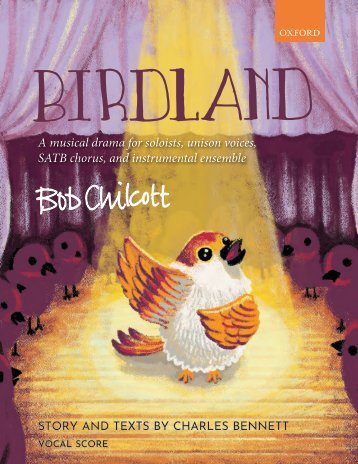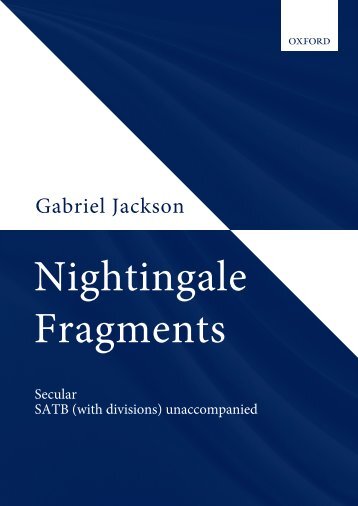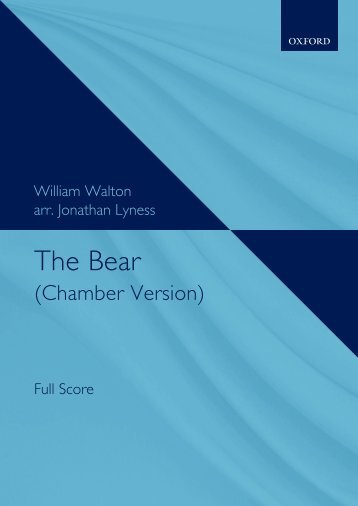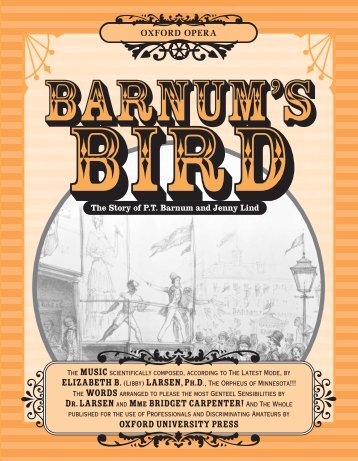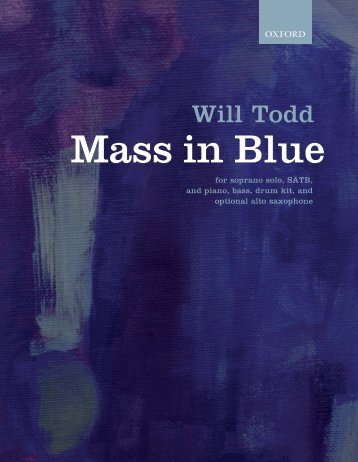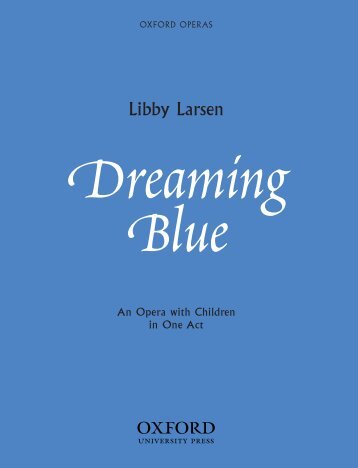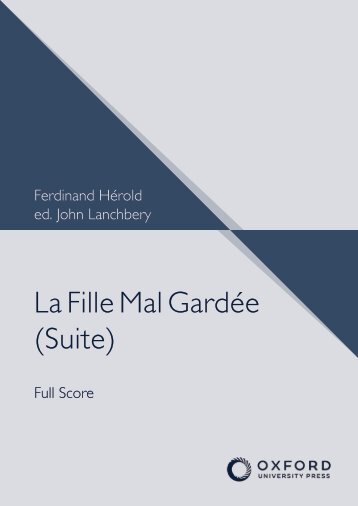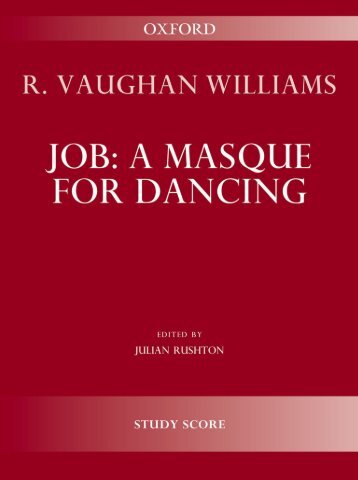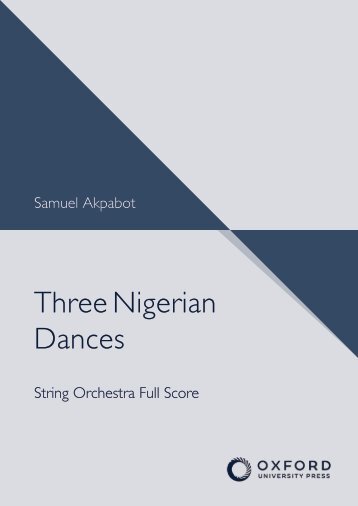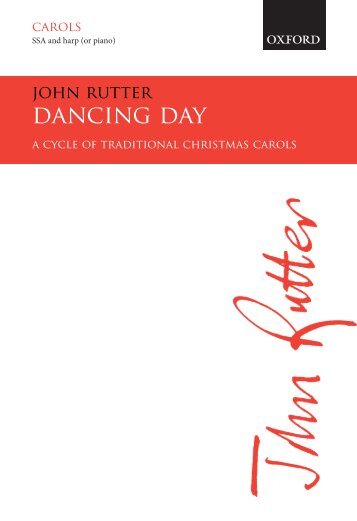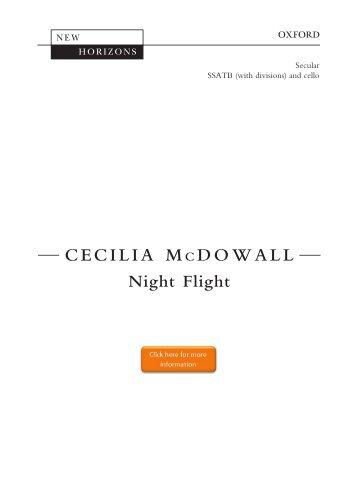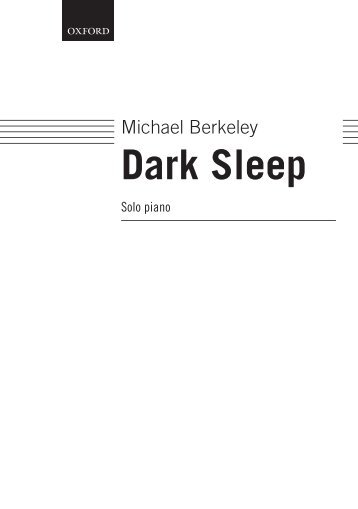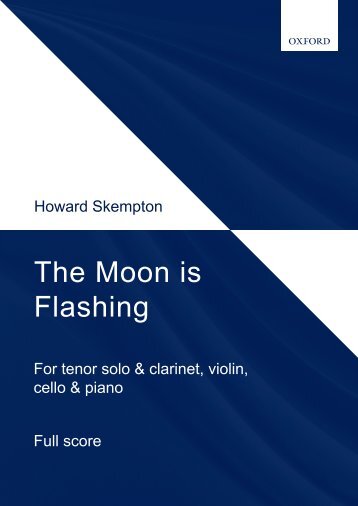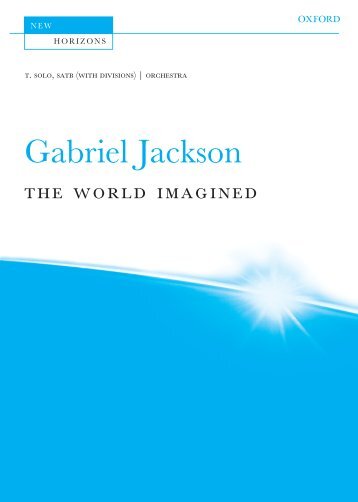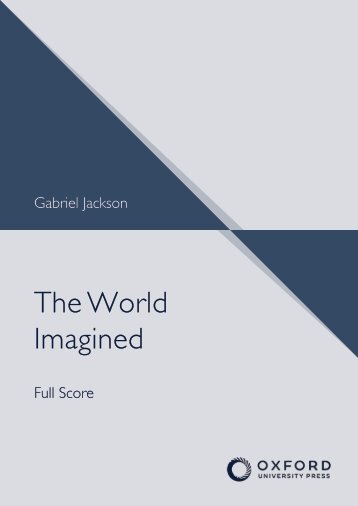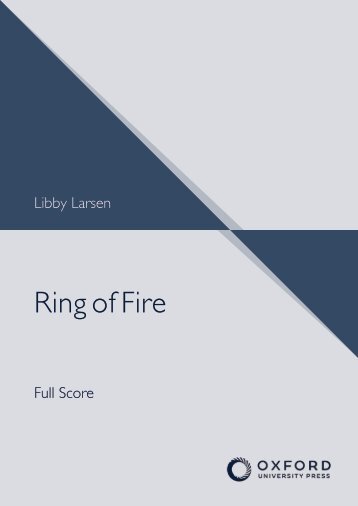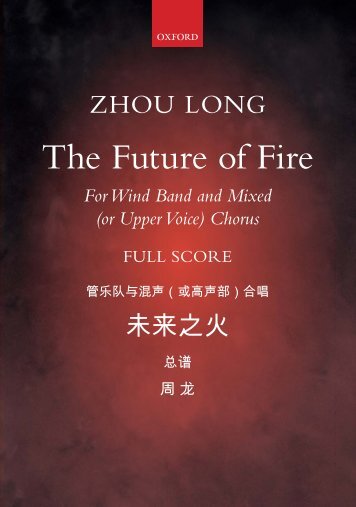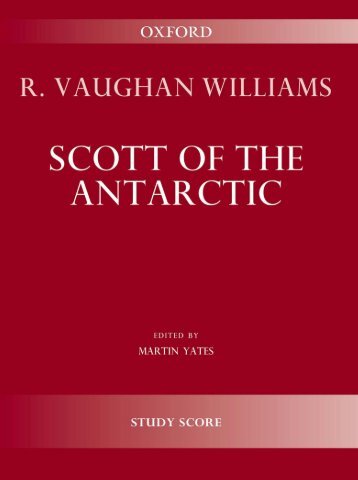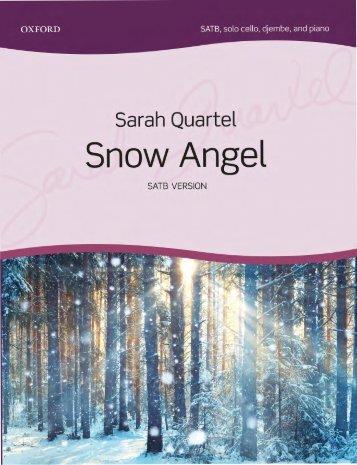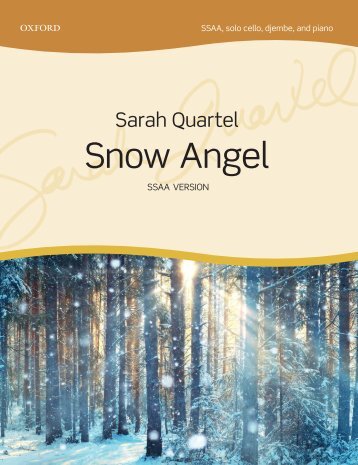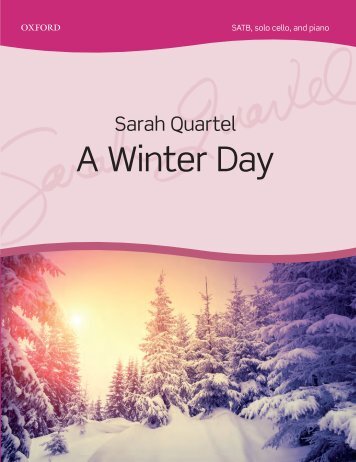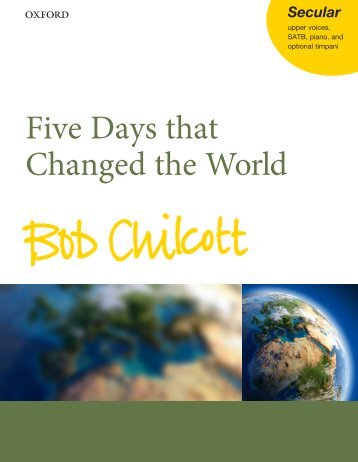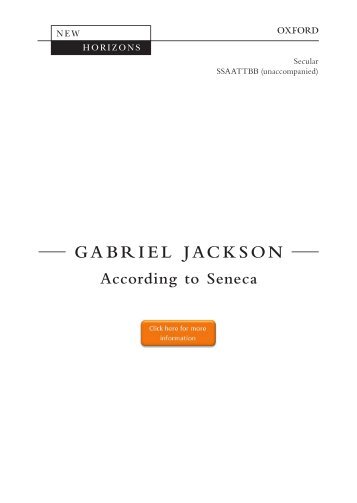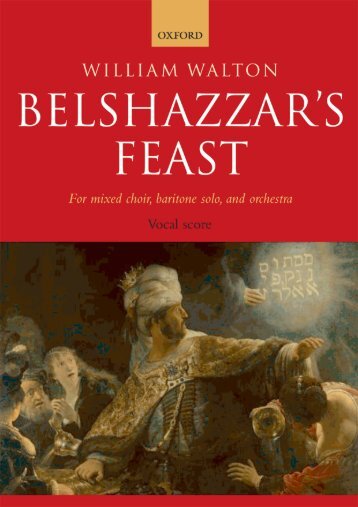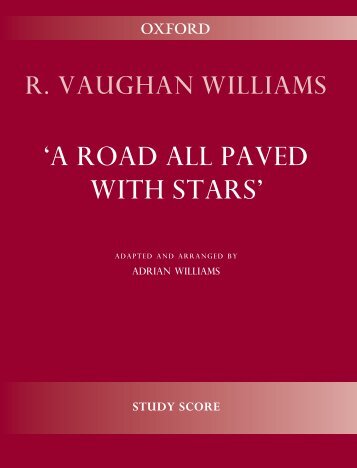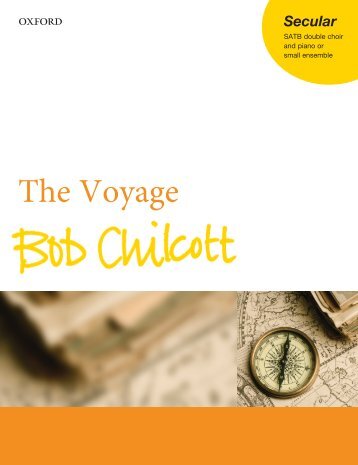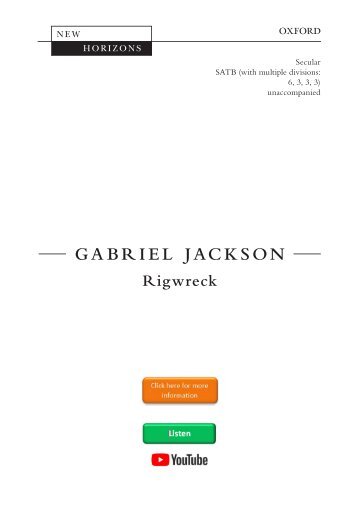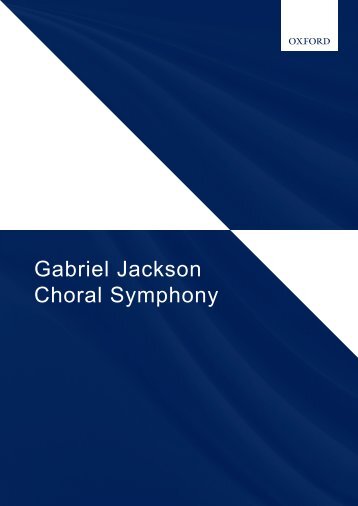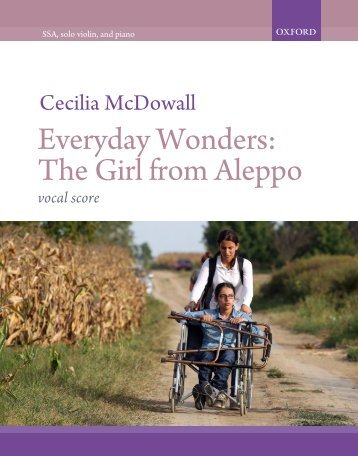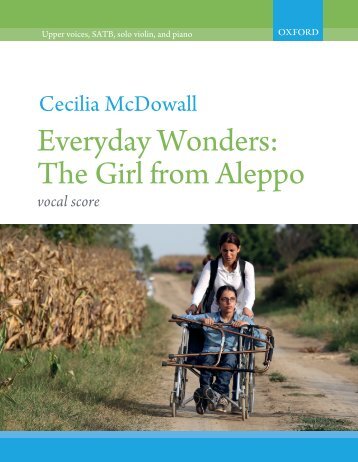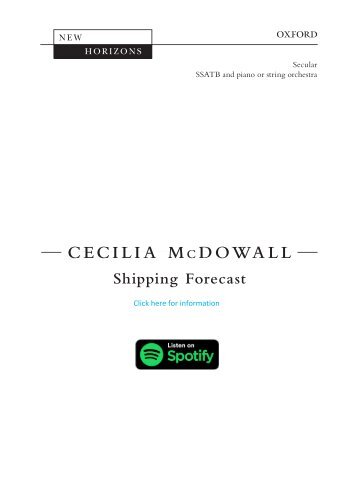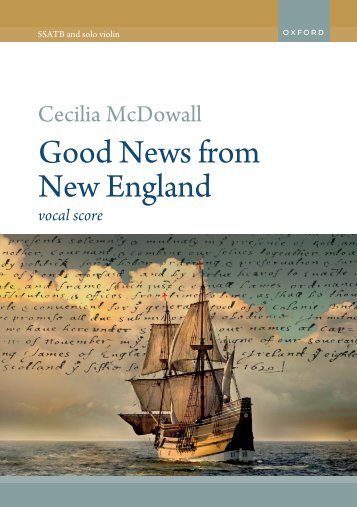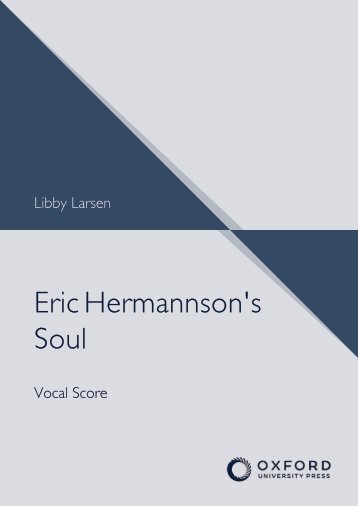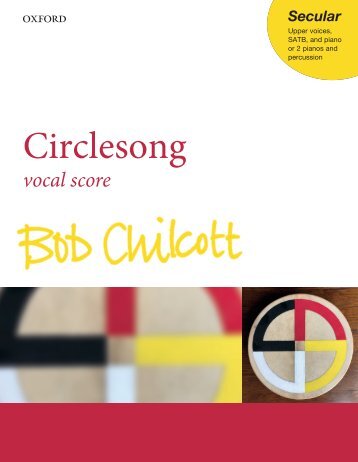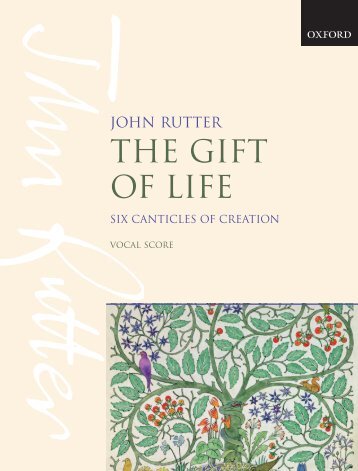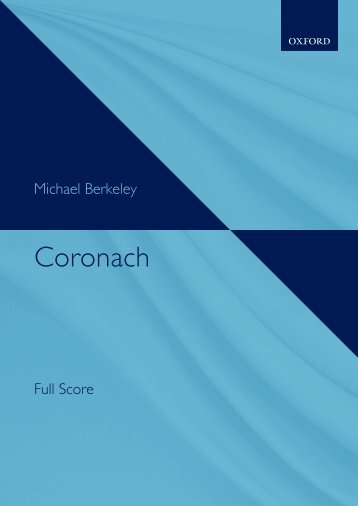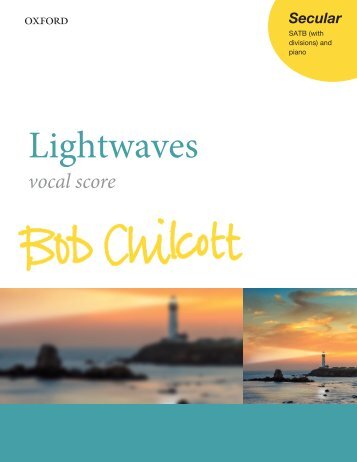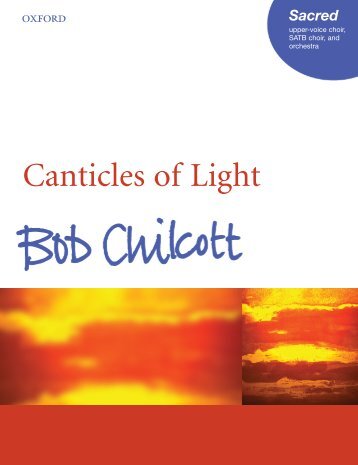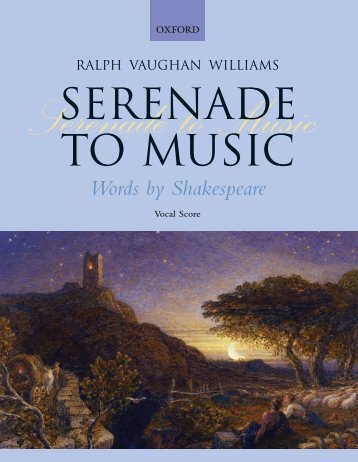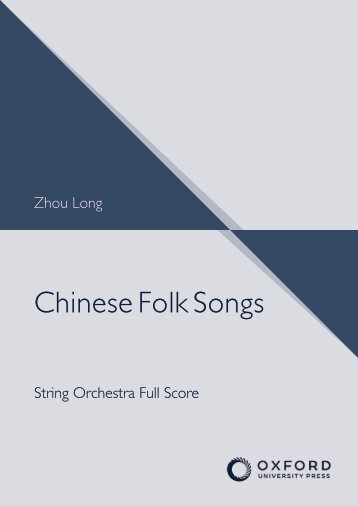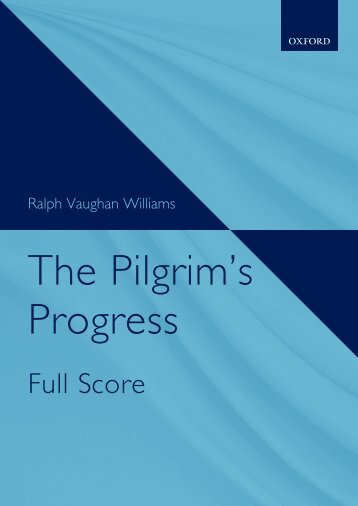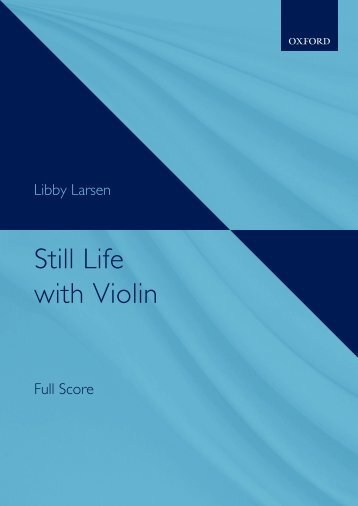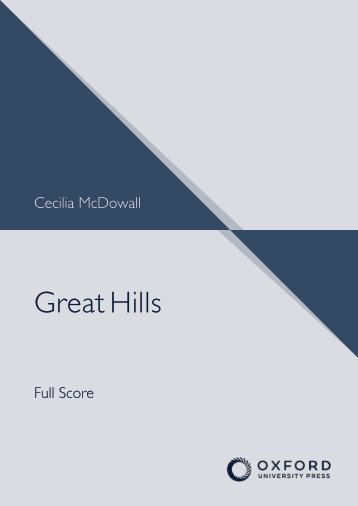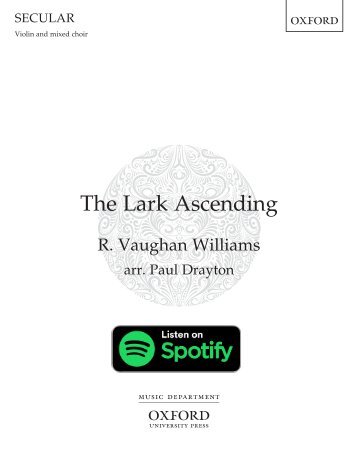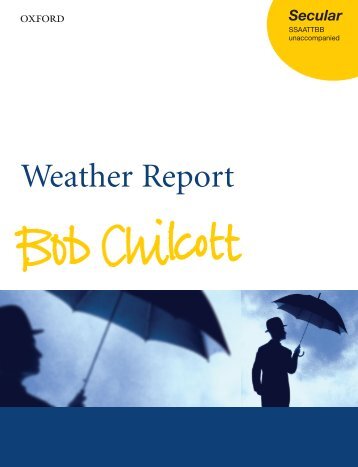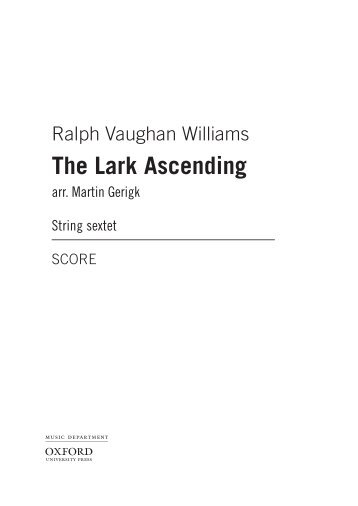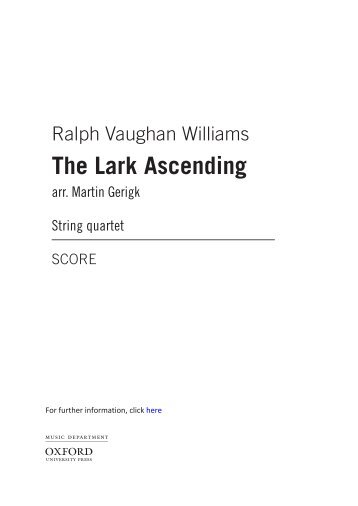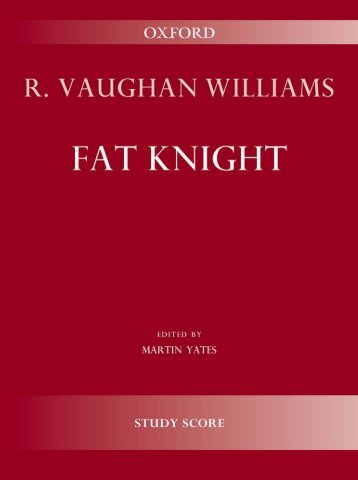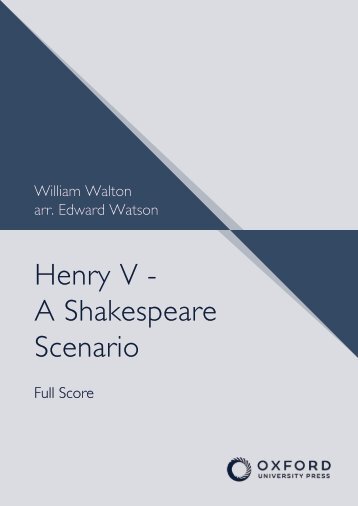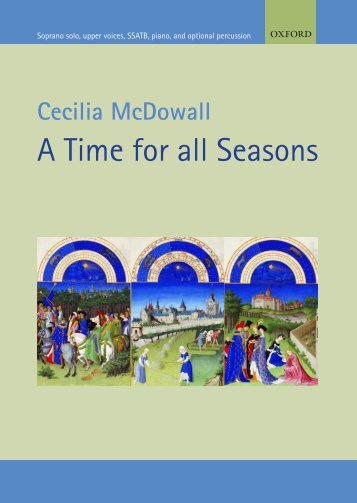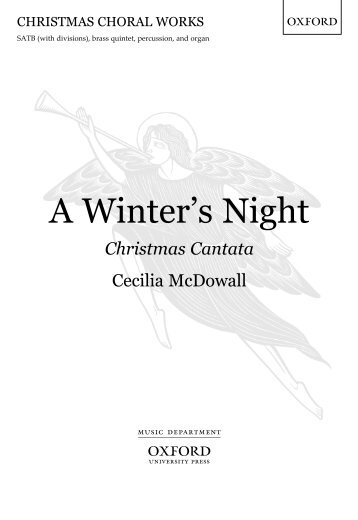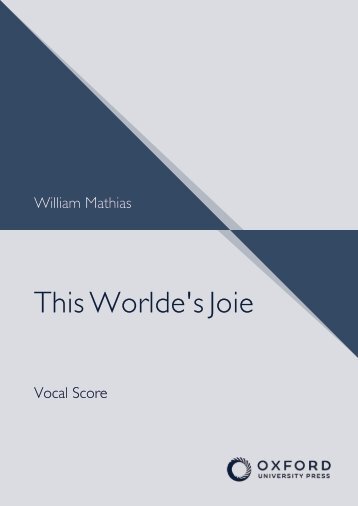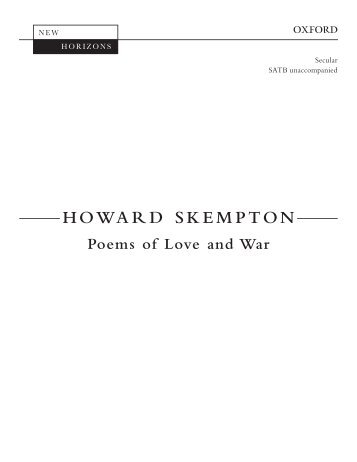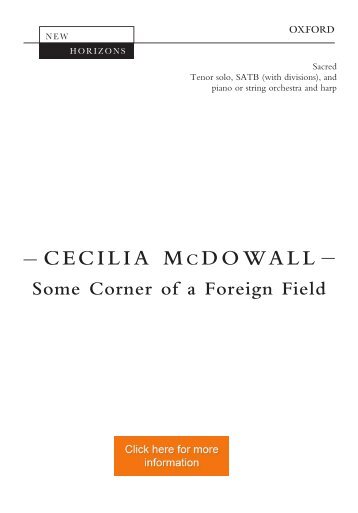
Oxford Programming by Theme
Oxford University Press is proud to publish musical works by some of the most significant composers of the 20th and 21st centuries, with a catalogue that includes a broad range of choral, orchestral and chamber music.

Themes
Select a theme from the list below to view playlists and perusal scores.
- Animals
- Colours
- Dances
- Day and Night
- Elements: Earth
- Elements: Fire
- Elements: Ice
- Elements: Water
- Historical Figures
- Journeys and Transport
- Life and Death
- Light and Dark
- Music about music and sound
- Myths, Legends, and Folktale
- Nature
- Royalty and Ceremony
- Rivers and Oceans
- The Seasons
- War and Conflict
Michael Berkeley - Flames
.Michael Berkeley FLA!iiES Commissioned by the Royal Liverpool Philharmonic Orchestra with funds provided by the Arts Council of Great Britain, and first perfonned on 10 January 1981 at the Philharmonic Hall, Liverpool, by the Royal Liverpool Philharmonic Orchestra, conducted by David Atherton. Orchestration: 3 flutes (2nd+alto flute, 3rd+piccolo) 3 oboes (3rd = cor anglais} 3 clarinets (2nd+Eb clarinet, 3rd+bass clarinet) 3 bassoons (3rd+double bassoon) for online perusal only 4 horns 3 trumpets 3 trombones 1 tuba timpani 2 or 3 percussion harn strings Flames Duration: approximately 7 minutes progrannne note by Michael Berkeley Flames was written for David Atherton and the Royal Liverpool Philharmonic Orchestra with funds provided by the Arts Council of Great Britain. Since I wanted to write a piece that had some connection with Liverpool, I found myself thinking of the bombardment it suffered during the Second World War and (as in other cities) the extraordinary resilience of the people who overcame the destruction and rebuilt their churches and homes, and indeed their entire lives. As a chtld I can remember being captivated by the sheer beauty of a flame while at the same time being in awe of its power to consume, and this was another source of inspiration for the piece. The music opens quietly and mysteriously; it is as though we are transfixed by what is about to happen. Then comes the violence of reality followed by contrasting passages depicting both the devastation and the pathos it leaves behind. A message of hope emerges as the trumpets ring out the melody of the Gregorian Plainchant verse heard on Christmas Day - Verbum Caro Factum Est, Alleluia (And the Word was made Flesh). of defiance. Flames is, therefore, a tribute to the city. The work ends on a note The music is loosely based on the modes of Gregorian Plainchant which were such a feature of my childhood days as a chorister at Westminster Cathedral Choir School. c Michael Berkeley 1980
for online perusal only
- Page 1: Michael Berkeley Flames Full Score
- Page 5 and 6: for online perusal only
- Page 7 and 8: for online perusal only
- Page 9 and 10: for online perusal only
- Page 11 and 12: for online perusal only
- Page 13 and 14: for online perusal only
- Page 15 and 16: for online perusal only
- Page 17 and 18: for online perusal only
- Page 19 and 20: for online perusal only
- Page 21 and 22: for online perusal only
- Page 23 and 24: for online perusal only
- Page 25 and 26: for online perusal only
- Page 27 and 28: for online perusal only
- Page 29 and 30: for online perusal only
- Page 31 and 32: for online perusal only
- Page 33 and 34: for online perusal only
- Page 35 and 36: for online perusal only
- Page 37 and 38: for online perusal only
- Page 39 and 40: for online perusal only
- Page 41 and 42: for online perusal only
- Page 43 and 44: for online perusal only
- Page 45 and 46: for online perusal only
- Page 47 and 48: for online perusal only
- Page 49: for online perusal only
Inappropriate
Loading...
Mail this publication
Loading...
Embed
Loading...

